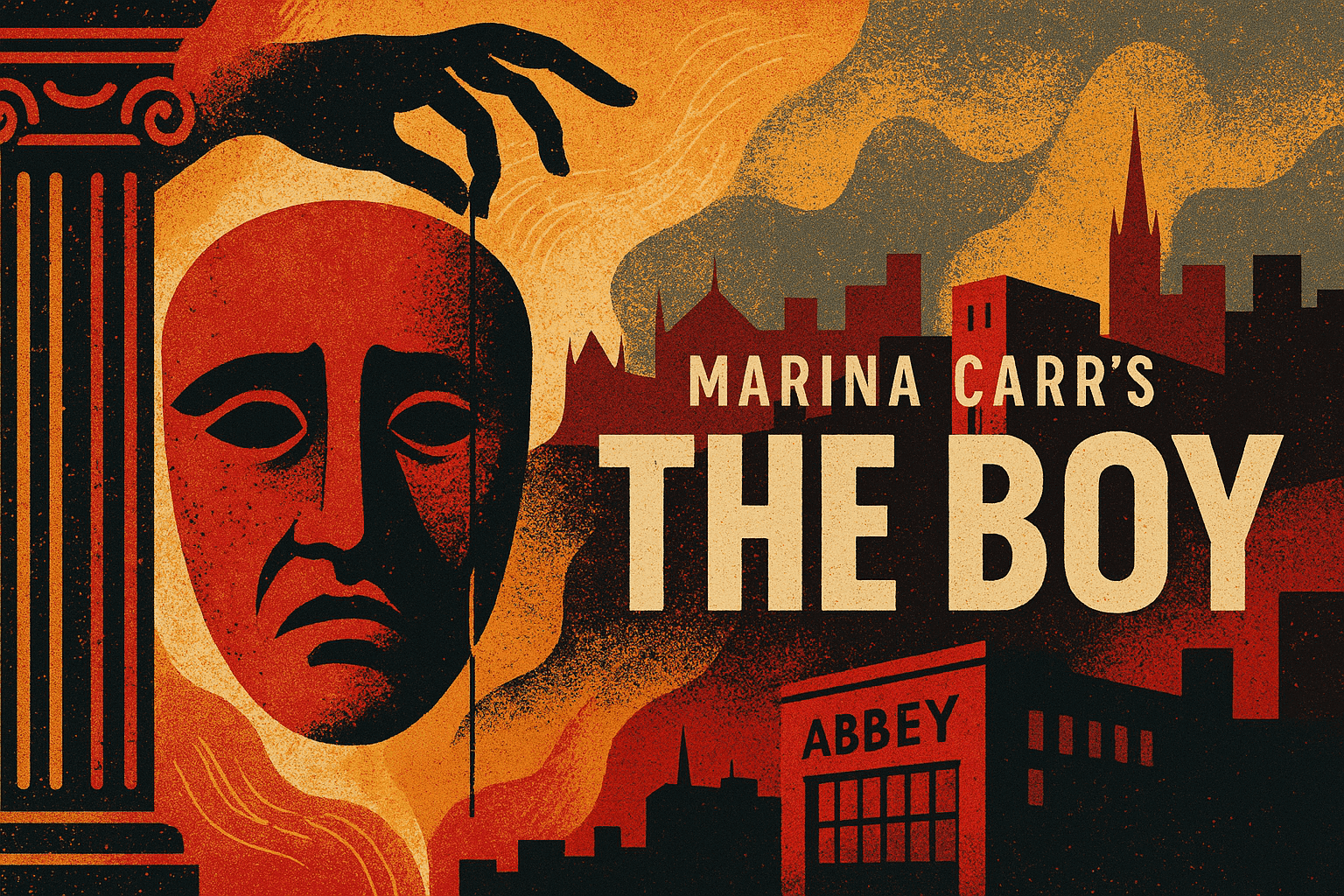A Project Delayed, A Myth Reborn
Originally scheduled for 2020, The Boy fell victim to the COVID-19 shutdowns. What might have been a dazzling world premiere became another casualty of a global pause. Yet in that silence, the play deepened. Draft after draft, idea after idea, Carr and director Caitríona McLaughlin reworked the material until the play itself became almost talismanic.
Now, five years later, the enforced delay feels like a strange kind of blessing. The Boy doesn’t just retell myth; it reflects our own recent history of crisis, reckoning, and survival.
Greek Tragedy in an Irish Key
At its core, The Boy is steeped in the Theban myths. A father, Laius, tries to defy prophecy but guarantees his own death at the hands of his son, Oedipus. Oedipus himself brings plague and ruin to Thebes before vanishing in exile. His daughter, Antigone, defies the law to bury her brother and pays the ultimate price.
But Carr refuses to leave the story in ancient stone. In The Boy, gods, monsters, and spirits walk beside mortals: the Sphinx, the Shee, the Moon, the Godwoman. Their presence reminds us that divine will and human law have always collided, and the consequences are often devastating.
As McLaughlin explains: “What is Man’s law versus God’s law — and which one is right, and right for whom?”

A Mirror to Ireland’s Own Shadows
Carr’s retelling resonates with today’s Ireland in powerful, unsettling ways. We too have endured a plague. We too have lived through revelations of abuse, silence, and complicity. Jocasta’s lines in the play — “Even still I wake astonished it wasn’t just some savage dream. That this city allowed it to happen. That I allowed it to happen.” — feel less like a mythic lament than a direct echo of Ireland’s social conscience.
The play, then, becomes more than a story of Oedipus and Antigone. It is a story about cycles of violence, secrecy, and truth-telling across three generations of a family. It is about us, as much as about the Greeks.
A Cast of Scale and Substance
With a large ensemble cast, The Boy combines mythic grandeur with raw intimacy. The production moves between the colossal and the deeply personal, between the gods’ indifference and the family’s horror at discovering who they truly are.
For Carr, the contradictions in the ancient texts offered fertile ground. The result is a theatrical cycle that is neither dusty nor “highfalutin,” as she puts it, but instead direct, visceral, and immediate — a story for everyone.
Why It Matters Now
The Boy is not just another adaptation of Greek myth. It is a reminder of why stories endure. They survive because each generation reinterprets them, reshaping their meaning to address the crises and questions of the present.
For Ireland in 2025, The Boy stands as both a cultural milestone and a social reckoning. It asks us to see myth not as an escape from reality, but as a sharper lens through which to view it.
The Boy runs at the Abbey Theatre, Dublin, until November 1, 2025, as part of the Dublin Theatre Festival.
